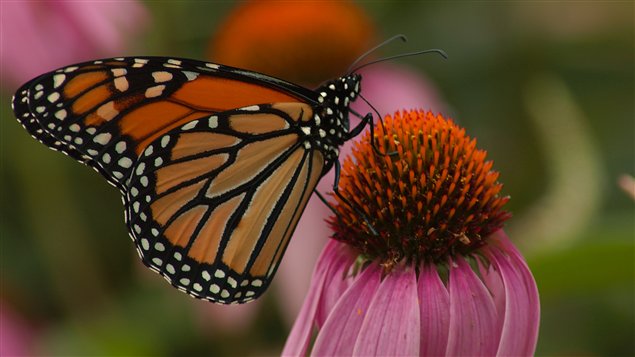The number of monarch butterflies that migrate from Canada and the U.S. to Mexico every year has dropped to its lowest level since people started counting them. There are other populations of monarchs, but those that go on this annual trek may disappear entirely.

Conservationists don’t actually count each butterfly overwintering in Mexico, but they estimate their numbers based on the amount of land they occupy. That has dropped from 18 hectares in 1995 to less than one hectare this year, according to a report by the World Wildlife Fund, Mexico’s Environment Department and the Natural protected Areas Commission.
Loss of milkweed a “reproductive desert”
They blame the extensive use of herbicides to kill milkweed to make way for corn and soy cultivation in Canada and the U.S. The monarch caterpillars feed on the milkweed.
“In the last ten years over 150 million hectares of land has been converted completely eradicating the milkweed,” says Maxim Larrivée, head of research and collection at Montreal’s Insectarium. “It’s turned into a reproductive desert where it should be the hotbed for the population to increase its size…This nail is being hammered down every year on the population.
Illegal logging in Mexico’s mountaintop forests has reduced the habitat where the monarchs overwinter.

Extreme weather killing monarchs
Larrivée also blames extreme weather events like a major drought in 2012 and the unusual cold in spring of 2013. “These weather events are also happening in Mexico,” says Larrivée , “The shift of cold temperatures to warm temperatures has accentuated in the last fifteen, twenty years which reduces the energy of the monarch and increases the mortality.”
The decline of these butterflies worries Larrivée. He says monarch are “champions of adaptation” and if it is difficult for them to reproduce with such changes, what will happen to larger animals which take longer to reproduce and adapt to change. Reflecting on the broader implications for biodiversity he says “at some point it’s going to hit us in the face, simply.”







For reasons beyond our control, and for an undetermined period of time, our comment section is now closed. However, our social networks remain open to your contributions.